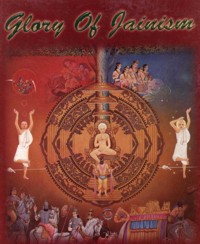Shri Padliptasuri
Acharyashri Padliptasuriji's life is an illustrious example of rare combination of miracles achieved through unusual power and books composed on the strength of imagination. He was born in Ayodhya situated on the banks of Saryu and Ganga. Fullachandra, his father was a rich businessman of the town and Pratima, his mother was a beautiful and virtuous woman.
It was because of Pratima's penance and worship that she had acquired the gem of a son. The boy was named Nagendra, since at the time of his birth the mother had a dream of nag, the serpant. From the very childhood Nagendra was brought up in a religious family. Moreover, he was fortunate enough to have guidance and patronage of efficient guru like Naghasti.
At a very young age of eight, he had his initiation under Acharya Naghasti and he came to be known as Muni Nagendra. Once he had gone for collecting alms (gochari). Having performed the usual rituals, returned to upashraya (a place for the stay of Jain monks and nuns) and told his Guru, in a shloka composed by him, how a young, newly married beautiful woman had offered alms to him. On listening to such amorous description of a woman, the Guru was enraged at the disciple and said, “You are burning with the fire of passion - पलितोऽसि (you have fallen)”.
Muni Nagendra was quick-witted and he requested the Guru in a polite tone, "Be kind enough to add one more 'अ' (a) sound and make me 'paalit' (पालित) from 'palit' (पलित)." It meant “kindly initiate me into the padlipt knowledge so that I shall be able to fly in the sky and be known as padlipta.” Greatly impressed by the unusual intelligence of Muni Nagendra, the Guru blessed him - पादलिप्तोभव - May you be padlipta! Since then Muni Nagendra is known as पादलिप्त. He also acquired the miraculous power of flying by applying ointment at the bottom of his feet. By the strength of this power, everyday he used to make a pilgrimage to the five tirth Shatrunjay, Girnar, Ashtapada, Sametshikhar and Mathura and only then would he accept water and food. He had also acquired four other siddha vidyas (firmly acquired supernatural power), namely Jivajivotpati Prabhrut, Vidya Prabhrut, Siddha Prabhrut and Nimit Prabhrut.
Once a siddha yogi named Nagarjun sent him a vessel containing Kotived ras which could make gold out of stone or iron. Acharya Padliptasuri said, "For a sadhu gold and stone are of equal worth. I don't need this Ras." Thereupon Nagarjun became angry; however Padliptasuri turned things into gold by touching and by urinating. Consequently Nagarjun's pride dissipated and he came to stay with Padliptasuri from whom he acquired the akashgamini (flying in the sky) knowledge. Nagarjun requested Acharyashri to ask him to do something. Thereupon Padlipŧacharya said, "You strive for the wellbeing of your soul by following Jain religion for the rest of your life."
Nagarjun obeyed him. He established a town named Padliptapur at the foot of Shri Shatrunjay Mahatirtha. Now it is known as Palitana. This is a unique example of a town being named after any Jain Acharya. Nagarjun constructed a temple on the hill and besides installing many Jain idols at the hands of Acharyashri Padliptasuriji, he installed an idol of Acharyashri himself. Acharyashri wrote an epic in Prakrit named Tarangvati which holds a unique place in the fiction of the world. He also composed books like Nirvankalika, Prashnaprakh, Kalgyan, commentary on Jyotish Karandak, Taranglila-katha and Virstuti. He resorted to fasting for 32 days on Shri Shatrunjay Tirtha and died a glorious death.
 Dr. Kumarpal Desai
Dr. Kumarpal Desai

